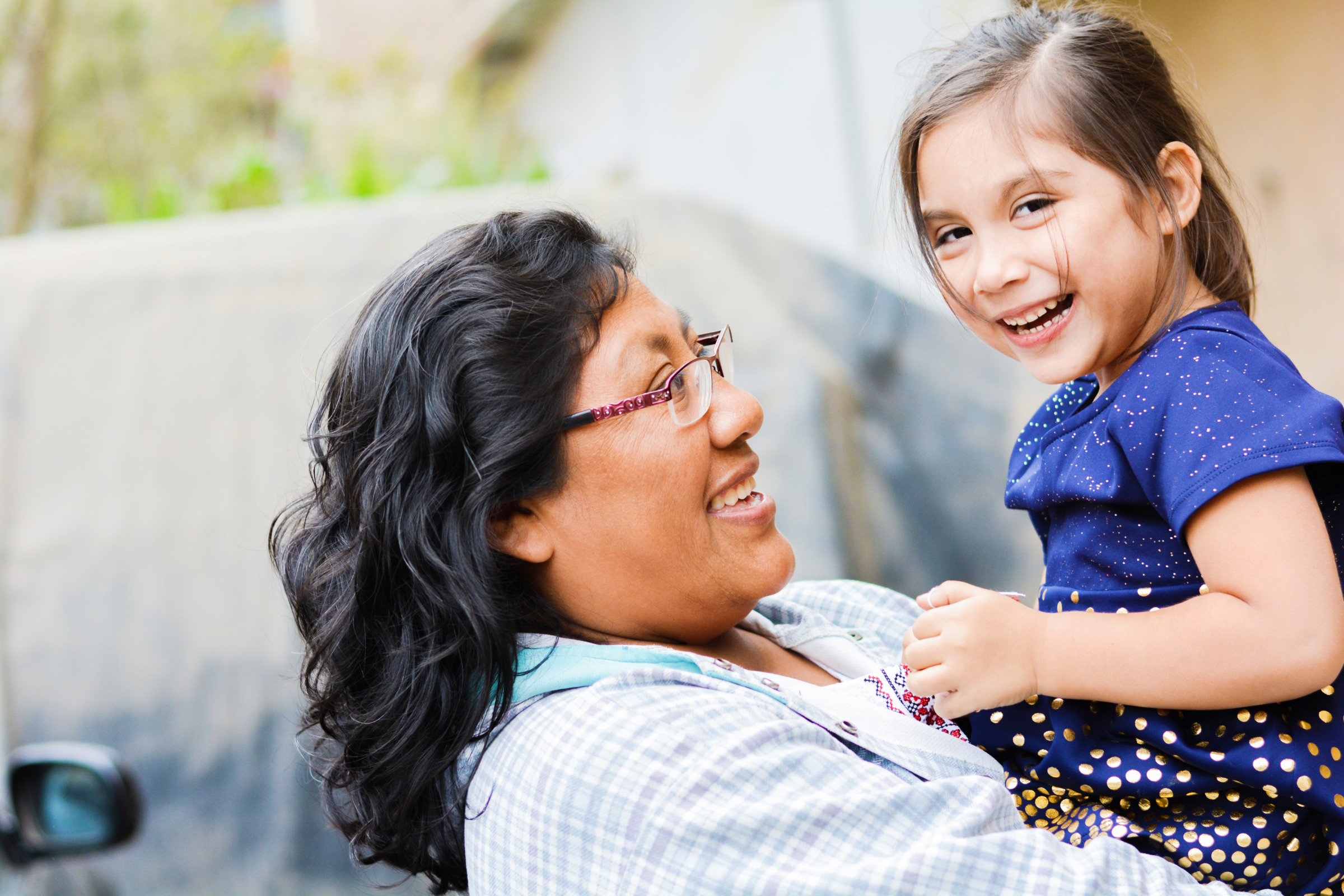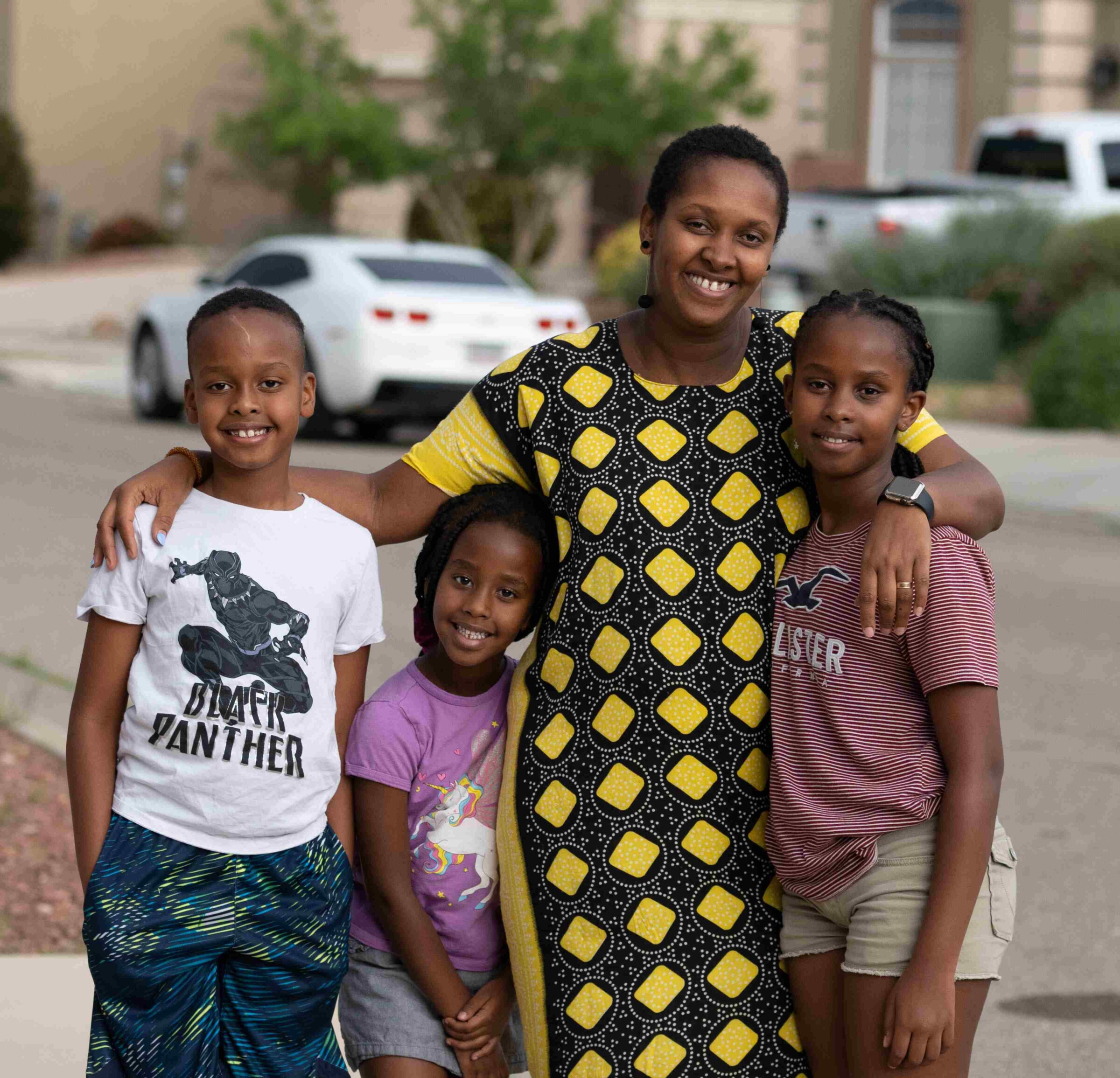New name.
Same mission.
LIRS is now Global Refuge.
Welcoming newcomers since 1939.
See Our EvolutionLIRS is now Global Refuge.
Welcoming newcomers since 1939.
See Our EvolutionThe browser you are using is not supported. Please consider using a modern browser.
How we advocate for the most vulnerable

For over 40 years, Global Refuge has been a national leader in assisting unaccompanied immigrant and refugee children safely reunify with their family and loved ones. We believe that every child deserves protection. Our advocacy focuses on recognizing the unique vulnerabilities of unaccompanied immigrant children and ensuring they are provided compassionate care as they seek protection, reunification, integration, and compliance with their immigration court proceeding.
Learn more about our work here.
Individuals and communities play an important role in supporting unaccompanied children as they are released into communities with their sponsors or family. Offering support and encouragement goes a long way to showing they are welcome.
According to the Homeland Security Act of 2002, unaccompanied children, also known as “unaccompanied alien children” (UAC), are defined as children under the age of 18 who have no lawful immigration status in the United States and do not have a parent or legal guardian in the United States, or whose parent or legal guardian in the United States is not available to provide care and physical custody.
The majority of unaccompanied children come from the Northern Triangle region of Central America—El Salvador, Guatemala, and Honduras. Some also come from Mexico and other countries in the world.
Unaccompanied children often embark on a dangerous journey from their home countries for a variety of reasons, including escaping violence by criminal groups, domestic abuse, gender-based violence, poverty, human trafficking, and family reunification.
o At the border: Under the Homeland Security Act of 2002, unaccompanied children from non-contiguous countries must be transferred to the care and custody of the Office of Refugee Resettlement (ORR) located within the Department of Health and Human Services (HHS) within 72 hours of being
apprehended by immigration authorities, most often by Customs and Border Patrol (CBP).
o In ORR care and custody- Once in ORR’s care, unaccompanied children are to be placed in the “least restrictive setting” possible, such as foster care, group homes, residential centers, or other similar programs that house and provide vital services such as case management, mental and physical health care and educational services. While the child is provided care and support to promote their safety and well-being, ORR begins the process of reunifying with a sponsor, such as a parent, relative, or responsible adult guardian, if possible.
o Vetting and unifying for release- After the vetting and background information is gathered by caseworkers, unaccompanied children may be released to a vetted family member or identified sponsor and begin to integrate into their communities with their sponsor.
o Release- Upon release, unaccompanied children must attend school and comply with their immigration court case. Children released from ORR care are referred for community-based case management services through ORR funded providers., Additionally, sometimes their sponsor attends legal orientation sessions to learn about what compliance requirements the child has with the immigration court.
In Fiscal Year 2023, the U.S. Customs and Border Patrol (CBP) encountered 137,275 unaccompanied children at the U.S/Mexico border.
There are three main protections for unaccompanied children.
o Flores Settlement: In 1997, the U.S. government reached a legal settlement in the case of Flores v. Reno, a class action lawsuit filed on behalf of immigrant children detained by the U.S. government. Under provisions of the agreement known as the Flores settlement, the government must promptly release unaccompanied children from custody to a suitable sponsor, such as a parent, relative, or responsible adult guardian, without unnecessary delay. The settlement also requires that, barring exceptional circumstances, children be placed in state-licensed programs and outlines child welfare standards for the detention, release, and care of children. (Several Administrations have attempted to codify rules to end the Flores Settlement,
and currently the Biden Administration has published a final rule and is seeking to end the settlement.)
o Homeland Security Act of 2002- The Homeland Security Act (HSA), provides the definition of unaccompanied children. Section 462 of the HSA transferred the care and placement of unaccompanied children from the legacy immigration agency, Immigration and Naturalization Services (INS) to the Office of Refugee Resettlement (ORR). The HSA mandated that ORR provide safe and secure shelters for children, offer case management services, and facilitate sponsorship and release to suitable sponsors.
o Trafficking Victims Protection Reauthorization Act (TVPRA) of 2008- The TVPRA establishes procedures for human trafficking screening and guidelines for the treatment and care of unaccompanied children while in federal custody, as well as their safe repatriation process for those returned to their home countries.
The care provided to unaccompanied children is guided by the principle of the “best interest of the child,” meaning all decisions made regarding the child’s care, placement, and services should aim to ensure their safety and well-being.
Services that are required for unaccompanied children by the Flores Settlement Agreement include: medical and mental health services, individual assessments of the child’s needs, outdoor recreation, access to religious services, access to legal services, education services, adaptation services that emphasize building cultural and age-appropriate skills and timely unification with sponsors.
Some children also receive home studies prior to unification to ensure the sponsor can provide a safe and appropriate environment for the minor. Children are also referred to post-release services upon release to a vetted sponsor.
Post-release services (PRS) are follow-up services that help ensure the safety and well-being of children and connect them to supportive services in the community where they live after they leave ORR custody. PRS provides important information to sponsors about the importance of compliance with immigration proceedings.
A home study (HS) is a thorough evaluation of a potential sponsor’s ability to ensure the safety and well-being of a child prior to the child is released to the identified sponsor. The process involves background checks of the sponsor and other adults in the home, home visits and an in-person interview with the sponsor, and interviews with other household members.
The TVPRA of 2008 includes a requirement for HHS to carry out home studies for a specific group of unaccompanied children. Specifically, children who are victims of severe trafficking, have special needs or disabilities (as defined by Americans with Disability Act), children who have been victims of physical or sexual abuse, or in situations where sponsors present a risk of abuse, maltreatment, exploitation, or trafficking.
Any child receiving a legally mandated home study is provided access to post-release services at the time of reunification. Children who are legally mandated to post release services are eligible to receive PRS until they turn 18, their case concludes, or they are granted immigration status or voluntary departure while other children may receive services for 6 months or less. For those children who do not receive a home study prior to release, ORR refers them to PRS service providers to support safety and stability in their new community. PRS providers are empowered to increase the level of PRS services for children based upon the child’s needs.
These criteria allow case workers to prioritize the allocation of resources to the most vulnerable children and ensure they receive appropriate care after their release from ORR custody. Although there are limited resources available, Global Refuge strongly advocates for all unaccompanied children to receive PRS.
PRS and HS are a highly effective way to mitigate risk of exploitation and ensure the safety of children. These services help unaccompanied children adjust to their new environment and ensure their ongoing safety and well-being. Home studies, in particular, act as a key tool to assess the suitability of potential sponsors and home placements.
o Identification of Suitable Sponsor: Reuniting a child into a safe and secure home begins with identifying potential sponsors.
o Verification and Vetting of Potential Sponsors: Once a sponsor is identified, the next step is to complete an application and undergo a thorough screening process to assess suitability, which involves verifying the sponsor’s identity and their relationship to the child. Global Refuge, through direct services and our network of trusted community partners, provides assistance to the government to identify family members in the country and ensure that children in our care are safely released to loved ones who are well-equipped to care for them. Our program includes fingerprinting specialists who perform background checks on some categories of potential sponsors to ensure the child is entering a safe home.
o Reunification and Community Support: We also assist caregivers through the family reunification process and identify the needs of families, connecting them with community resources such as foodbanks and education, medical and mental health services, and pro bono legal counsel.
Unaccompanied children are vulnerable to sex and labor trafficking, labor exploitation, kidnapping, and family violence and abuse. Once they arrive in the U.S, they face significant difficulty accessing services in their communities as a result of language and cultural barriers, immigration status, lack of access to legal counsel and child advocates, and unfamiliarity with U.S laws designed to protect children such as labor laws and mandatory schooling.
Ensuring the safety and wellbeing of unaccompanied children involves a multi-pronged approach led by Congress and government agencies. Here are few ways elected officials can address their immediate and long-term needs:
o Conduct appropriate background checks and screenings for potential sponsors based on the relationship to the child, including verifying their identity and capacity to provide a safe and stable environment.
o Expand post-release services so they can be offered on a voluntary basis to all unaccompanied children immediately they are released from ORR custody.
o Provide access to legal representation and services to help children navigate the complex immigration system and safeguard against labor and other types of exploitation.
Individuals and communities play an important role in supporting unaccompanied children as they are released into communities with their sponsors or family. Offering support and encouragement goes a long way to showing they are welcome. o Advocate -Sign our action alert! Let your elected officials know you support policies that protect and welcome unaccompanied children and urge them to fund programs that ensure unaccompanied children are safe and thriving.
o Volunteer to Be a Foster Parent- Consider becoming a foster parent to provide children with a safe and nurturing environment as they await family reunification.
o Join our Ambassador Program – a national community, of passionate advocates, volunteers, and leaders. With active support and training from Global Refuge staff, Ambassadors act in their communities, from organizing awareness campaigns and advocacy actions to hosting prayer vigils or gathering supplies to aid local crisis response.
o Pray- The power of prayer, whether individually or with others, including community members, elected officials and impacted people, is undeniable in bridging divides and reminding us of our common humanity. Take a look at these prayer resources and contemplate using them and sharing with others.

Explore the many ways to support Global Refuge.
Get InvolvedExplore the many ways to support Global Refuge.
Get Involved